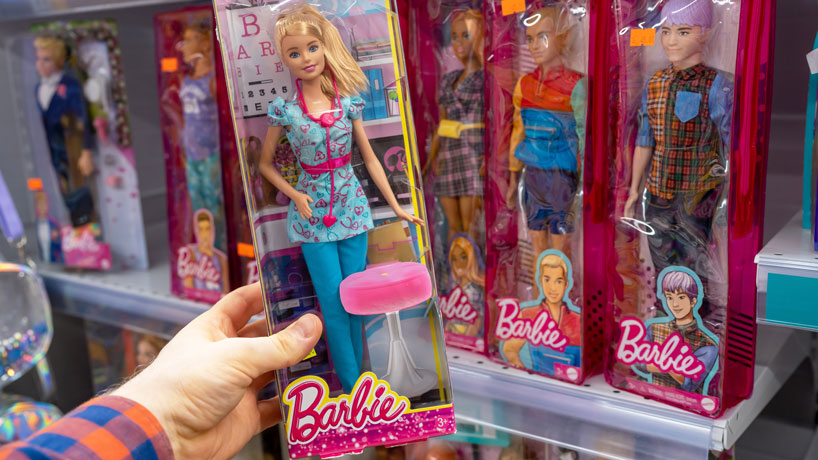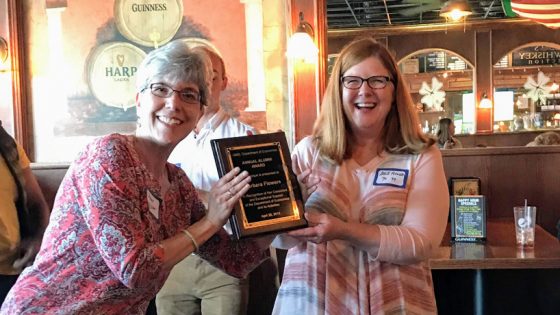
Barb Flowers, an UMSL economics graduate, recently appeared on NPR’s The Indicator from Planet Money to chat about Barbie’s careers over the years and how they reflect women’s share of the labor force. (Photo courtesy of 8th – stock.adobe.com)
It’s safe to say that Greta Gerwig’s blockbuster “Barbie” movie has been the talk of the summer, bringing in a whopping $162 million during its opening weekend in the U.S. Alongside star Margot Robbie, the film portrays different versions of the iconic doll and her many careers over the years, including doctor, physicist, author and even president.
So, what can Barbie’s many careers – over 200 of them in total – tell us about the journey of women through the American workforce?
That’s exactly what economics graduate Barb Flowers, who earned her degree in economics from the University of Missouri–St. Louis, discussed on a recent episode of The Indicator from Planet Money podcast, produced by NPR, on July 24. Flowers, who spent several years working as a coordinator in economic education at the Federal Reserve Bank of St. Louis before retiring a few years ago, joined hosts Wailin Wong and Adrian Ma to discuss the evolution of Barbie and how the doll’s different careers coincided with changes in labor economics for women.
Economics graduate Barb Flowers (right) receives an alumni award from then-department chair Anne Winkler at an economics alumni gathering in 2019. (Photo courtesy of UMSL Economics)
As part of her role with the St. Louis Fed, Flowers – who laughingly noted that she has avoided going by “Barbie” for her entire life – developed curriculum on economics and personal finance for students of all ages, from children to adults. When Mattel, the parent company of Barbie, decided to let the public vote on Barbie’s next career for the first time, Flowers was inspired to develop a lesson plan on “Barbie in the Labor Force” that examines historical trends in women’s share of the labor force and chosen occupations over time through the lens of Barbie.
Flowers’ lesson plan introduces basic vocabulary terms such as “labor force” and “labor participation,” asks students to explore how women have increased their share of the workforce over time and, finally, has students organize Barbie’s different careers in order of when they think they were introduced.
“I went to the Barbie website and saw all the careers,” Flowers noted. “I tried to put my mind in the mindset of the developer of the Barbie and why they chose those particular Barbies. What were the historical cues that kids could conjure up to think about why this was happening at that time?”
You can listen to the full episode on the NPR website.















